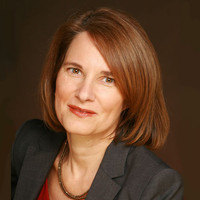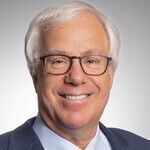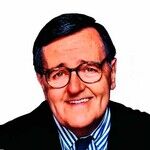The world stage was set for a theater of war in spring a century ago, and we'd do well to think about that in our uneasy Age of Anxiety.
It soon became the worst thing in human history, like the Black Death. They seldom say in school that the "Great War" carnage exceeded that of World War II.
But there was never supposed to be a sequel. The Great War was considered so harrowing that there would never again be a world war. It was "the war to end all wars." Sadly, modern memory is short.
Europe felt itself a fairly happy family, with many royal rulers related. A hundred Aprils ago in 1914, few saw it all coming: the crumbling of the British Empire. The Kaiser and the rise of German military might putting France's teeth on edge. A fear of Russian intervention shivering in the air.
An archduke's assassination in Sarajevo left the balance of power ajar and aflame. Poised to inherit the throne of the Austro-Hungarian empire, the obscure Franz Ferdinand mattered more in death than he did in life.
The armies that assembled on the fields of France had horses and cavalries ready to go. British battleships relied on flags for signaling.
The new 20th century ways of war meant machine guns, gas masks, trenches, tanks and the stuff of nightmares, "shell shock." Conditions in the mud trenches were unspeakable. A generation of English men died young.
Poet-soldier Rupert Brooke, a Cambridge graduate, left their collective epithet in a bittersweet sonnet: "If I should die, think only this of me:/That there's some corner of a foreign field/That is for ever England."
And yes, Brooke died in 1915.
When America joined the Allies later in the game, it changed our country forever. Enter America, stage right. President Woodrow Wilson presided over a mass mobilization, but failed to make a lasting peace. Such was his tragic vision.
For my great-aunt Caroline Dueno, a Wisconsin lass, being shipped overseas as a wartime nurse was the adventure of a lifetime.
Here in Washington, embowered in trees, is a graceful gem of a marble gazebo not far from the Tidal Basin. The April cherry blossoms are about to peak, and visitors will soon descend on the city. You have to look hard to find the District of Columbia Great War memorial. It stands near the lavish World War II memorial. Just ask a park ranger.
Built in 1931, the Great War memorial was the site where the first performance of the national anthem took place (as the official national anthem.) The United States Marine Band played under the baton of the famed John Philips Sousa. President Herbert Hoover attended the dedication.
Oh, the memorials speak volumes. The older one is full of sorrow and memory, with a sense of irreparable loss with each inscribed name. The second is triumphal, and pays homage to the states, an odd thing for armed forces with shared sacrifices across such lines. The scale is a bit much, designed in time for the victorious "Greatest Generation" to see how they will be remembered on the National Mall.
A somber sense of modesty was lost along the way, somewhere between the war memorials. America emerged as the leading world power when the fog, smoke and fury cleared in 1945. We claimed this place without the sickening toll of bloodshed that other nations like Britain and Russia had suffered in the heart of Europe.
The worldwide epidemic that accompanied the Great War, the Spanish flu, claimed more deaths than the battlefield. Civilian or military, it was a crushingly hard time to be alive a short century ago.
Too soon we forget. Brilliant books tell us how Europe got tangled in alliances and a race to arms as soon as the shots in Sarajevo rang out. They make me glad President Obama is more dove than hawk, no matter what moves on the world map.
Poet Rudyard Kipling, a war patriot whose son died in the trenches, left these trenchant lines behind:
"If any question why we died/Tell them because our fathers lied."
Now that's bitter in the end.
To find out more about Jamie Stiehm, and read features by other Creators writers and cartoonists, visit www.creators.com.






View Comments